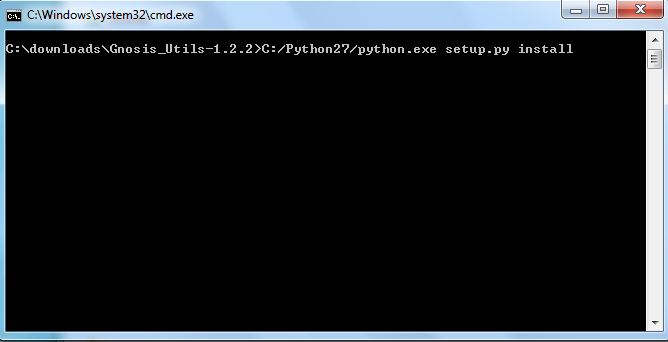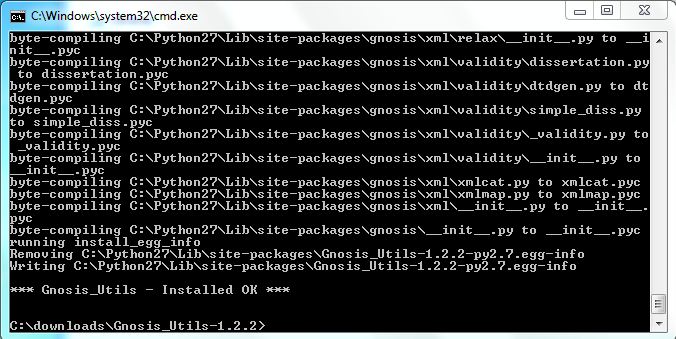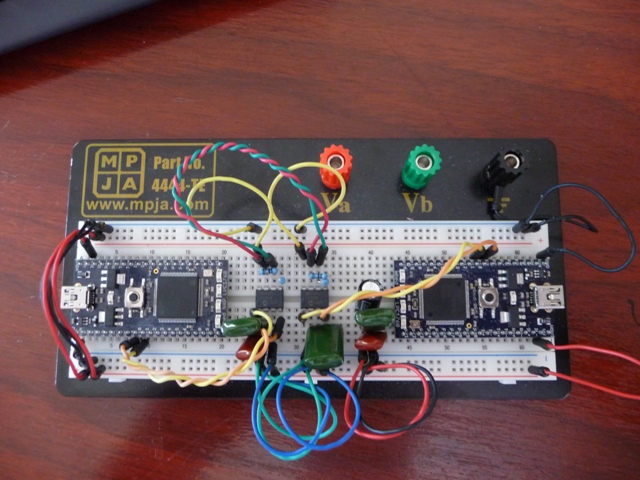CANopen
Page last updated
07 Dec 2012, by
 Sam Grove
Sam Grove.
30
replies
CAN,
CANopen
CANfestival Framework Running on mbed
CANfestival is an open source CANopen framework to turn any uC into a CANopen node.
This page documents how to get started with the CANfestival framework on mbed and install the object dictionary editor on a windows PC.
More detailed information about the CANfestival framework can be found here.
Information about CANopen can be found here.
Gathering the Minimum Requirements
The following requirements are necessary for a windows machine.
- Python 2.4 or greater
- Gnosis Utils
- wxPython
- Mercurial
- CANfestival framework
Setup Details
- Install Python on your PC
- Install wxPython on your PC
- Install TortiseHg on your PC
- Clone CANfestival repository
- Open TortiseHg Workbench
- File - Clone Repository
- Source =
http://dev.automforge.net/CanFestival-3
- Destination = anywhere on the local drive
- Install Gnosis Utils on your PC
- This is installed from the command line.
- Open a shell and use dos (cd command) to navigate to the directory that contains the unzipped files.
- Moving the extracted folder close the root drive will make this easier.
- When at the directory containing setup.py run C:/Python27/python.exe setup.py install


Hardware and Connections
If you are not connecting to a bus with termination resistors - you will need to add them yourself.
- mbed with a free CAN peripheral
- Examples use pins p9 & p10 (rd, td)
- CAN physical layer transceiver

Example Projects
Master node
CANfestival - an open source CANopen framework
Slave node
CANfestival - an open source CANopen framework
Notes about the Framework
The node is configured mostly with the object dictionary and EDS editor. This GUI program is found in the framework repository that was cloned. If the setup steps were executed correctly navigating to .\CanFestival-3\objdictgen will display a ton of *.py files.
Using the Object Dictionary and EDS Editor
Running objdictedit.py will execute the following GUI program. Help and details about the framework can be found under the Help tab (or F2). When an *.od file is created or loaded the parameters can be changed and a new object dictionary can be created.
More detailed information about the object dictionary and EDS files can be found here.
Deviation from the Framework
From the repository there are a few file naming conflicts that need to be resolved when integrating with the mbed api. These are resolved in the example projects as follows:
- .\CanFestival-3\src\
- timer.c - renamed canopen_timer.c in the mbed examples
- .\CanFestival-3\include\
- timer.h - renamed canopen_timer.h in the mbed examples
- can.h - renamed canopen_can.h in the mbed examples
Files of Interest
Interaction between the peripherals and the stack take place in:
- .\CanFestival-3\driver\mbed\
- can_mbed.cpp - peripheral access to the physical layer
- timer_mbed.cpp - timer access for the micro scheduler
- .\CanFestival-3\include\mbed\
- can_mbed.h - header for can_mbed.cpp
- applicfg.h - relate data types from the target to the stack defined types
30 comments on CANopen:
Is there any example with using of these libraries? I don't see any example to understand how it work. Could anyone help me?
Has anyone been able to get the objdictedit.py program to run? I've tried running it and all I get is a command line flash and nothing else. Any suggestions would be much appreciated.
There was an installation step missing, the notebook page has been updated. The object dictionary relies on wxPython as well as gnosis utils.
I've tried running it and all I get is a command line flash and nothing else
If anyone else has this problem make sure wxPython is installed on your machine.
WarwickRacing
#
12 Apr 2012
WarwickRacing
#
01 May 2012
Hi Sam, I found a copy on a chinese site, but couldn't download! I've just notived your link - many thanks!
 g s wrote:
g s wrote:
You should be able to access the PDF on the archived version of the website...
Thanks. Stored a copy on mbed.org and updated the link.
Hallo Sam,
I try to compile the Canopen Slave but i get a compiler error
"no instance of constructor "mbed::CANMessage::CANMessage" matches the argument list" in file "framework/driver/mbedcan_mbed.cpp", Line: 58, Col: 99
You may have a look for that?
regards
Joerg
Joerg,
Update to the newest revision(6). There was an error in the typecasting of the CANMessage constructor. Not sure when that was injected.
It works now. Thanks a lot :)
Hallo Sam,
the Master communicate with the PC via USB?
Are there more documentation?
regards
Joerg
Joerg,
The only information about the USB commands is in port_helper.cpp (just in source). It was for debugging purposes. The best documentation about the stack will be found when you clone the repository and navigate to
.\canopen\objdictgen\doc
Joerg,
The only information about the USB commands is in port_helper.cpp (just in source). It was for debugging purposes. The best documentation about the stack will be found when you clone the repository and navigate to
.\canopen\objdictgen\doc
My question is more I have to use the PCAN-USB from Peak Systems to use the EDS Editor or it works with the mbed Master.
regards
Joerg
Hi Sam,
I have met two problems when using your port of canfestival:
1. After setting the 0x1017 of the OD to 0x3E8 (1s heartbeat), there is no heartbeat when the slave node go into operational state. Am I missing some configuration steps? Or the timer driver is not working properly?
2. The SDO cycle is around 12ms, this is not good enough. I'm using canfestival with a LPC1752 develop board and a Kvaser can-usb cable, the worst SDO cycle is around 5ms. I'm not sure if it's the problem of the mbed driver.
Do you have any ideas about these problems?
Cheers,
Simon
Hi Simon,
I haven't worked with this for over a year now but these would be my thoughts on the problems your experiencing...
Quote:
1. After setting the 0x1017 of the OD to 0x3E8 (1s heartbeat), there is no heartbeat when the slave node go into operational state. Am I missing some configuration steps? Or the timer driver is not working properly?
The micro-scheduler is configured in ./framework/driver/mbed/timer_mbed.cpp
Quote:
The SDO cycle is around 12ms, this is not good enough. I'm using canfestival with a LPC1752 develop board and a Kvaser can-usb cable, the worst SDO cycle is around 5ms. I'm not sure if it's the problem of the mbed driver.
The driver should be using the 3 hardware transmit buffers (https://mbed.org/forum/mbed/topic/790/?page=1#comment-4015) but that revision of the mbed library is much older than what is current. Also, I'm sure you are using a different release of the CANfestival stack on your other board. There are hundreds of patches from this port of the stack and where the CANfestival stack currently is.
Hi Sam,
Thank you very much for you reply. I should replay eailier, but I was very busy untill now I can go through your advise. To your first quote, of course I can change the configuration to make it work. However, since we are using mbed, I think the better way is using mbed API to write the timer driver. And I tried by using Timer and osTimer, the result is very good and the timer driver is very accurate (millisecond level) and simplier. If you don't mind, I can contribue my code.
To your second quote, I think the problem is that the canReceive() is in the main while, loop but not in an interrupt. I will write some code to try when I'm free.
Cheers,
Simon
Can someone give me an example on how to send data from slave(mbed) to master(mbed)?
Definitions:
Message m2 = {0xFF,0,0x8,{0x00,0x10,0x20,0x30,0x40,0x50,0x60,0x70}};
CAN_PORT cp = 0;
Neither of these work :
canSend(cp,m2);
canSend(cp,*m2);
canSend(cp,m2*);
Thanks in advance.
HELP ME!
I used LPC 1768
used canopen_mastermode and canopen_slavemode,
Master enter state=start
Slave have show ID:0x0000 DLC:2 Data(0→1):0x01 0x00
Then
Slave enter input=1 or input=5 or input=any number
but it not show anything or not send anything (_sendPDOevent not go to status = state5; it can't send PDO)
I want PDO and SDO can send
I have only one master node and one slave node
please give a examples or teach me
help me, thenks.
ps.My English is not good,so sorry.
Hi,
I am trying to port the canfestival to LPC 2387.I having problem figuring out where the acceptance filtering configurations are done in the Canfestival driver?Please can anyone help me out. Thanks in Advance!
Regards,
Atal
johnson6987
#
13 Aug 2014
Sam,
Or anyone else who might be able to help,
I'm wanting to control some motor controllers via an mbed using CANopen DS 301. So I am only interested in the master node part of CANopen Festival. However, when I rand objdictedit.py and went to create a new node... DS 301 was not an option. (only DS 401 - DS 419 and then DS 302). I wondering how I can implement my mbed as a master node without the CANopen Festival DS 301 profile? Am I missing something?
Thanks
Hi,
I test the slave node but I have the same issue about Heartbeat: I did not ... Is there a solution to this?
Sincerely, JB
 I've tried to run the objdictedit.py program with the IDE pycharm. But it does not work.
You can find the error message in the Picture.
Has anyone been able to get the objdictedit.py program to run?
Any suggestions would be much appreciated.
I've tried to run the objdictedit.py program with the IDE pycharm. But it does not work.
You can find the error message in the Picture.
Has anyone been able to get the objdictedit.py program to run?
Any suggestions would be much appreciated.
Same problem here if you have any solutions please let us know
Thank you
First of all thank you for your answer.
However i could not solve my problems. There are several reasons and i will be more than happy if you help me out.
When i download .dmg version of 3.0.2.0 and try to run on my OSX i get disk image corrupted error every time i try.
When i encountered this problem i tried to use older packages however the issue is the same. I do not have any idea why this is happening and how i can install this package on OSX.
I tried to switch windows 10 and try to use the given .exe however i was not successful at this either if you have any solutions please guide me.
Thank you for all your help
Is there an EDS file available for use slave node ?
Hello,
is it possible to use this stack for STM32?
I would appreciate any answers.
Thank you and best regards,
I tried compiling on the STM32H745I Discovery, but MBED doesn't seem to be compatible, or at least it doesn't import.
Which MBED version and platform can compile?
Please log in to post comments.




 I've tried to run the objdictedit.py program with the IDE pycharm. But it does not work.
You can find the error message in the Picture.
Has anyone been able to get the objdictedit.py program to run?
Any suggestions would be much appreciated.
I've tried to run the objdictedit.py program with the IDE pycharm. But it does not work.
You can find the error message in the Picture.
Has anyone been able to get the objdictedit.py program to run?
Any suggestions would be much appreciated.
Is there any example with using of these libraries? I don't see any example to understand how it work. Could anyone help me?